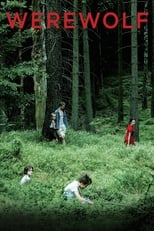Stephen Campbell
Oct 17, 2019
8/10
A World War II political allegory/fairy tale/coming of age drama wrapped up in a horror aesthetic that works exceptionally well
>Everything that was not connected with the immediate task of keeping oneself and one's closest friends alive lost its value. Everything was sacrificed to this end. A man's character became involved to the point that he was caught in a mental turmoil which threatened all the values he held and threw them into doubt. Under the influence of a world which no longer recognised the value of human life and human dignity, which had robbed man of his will and had made him an object to be exterminated (having planned, however, to make full use of him first – to the last ounce of his physical resources) – under this influence the personal ego finally suffered a loss of values. If the man in the concentration camp did not struggle against this in a last effort to save his self-respect, he lost the feeling of being an individual, a being with a mind, with inner freedom and personal value. He thought of himself then as only a part of an enormous mass of people; his existence descended to the level of animal life. The men were herded – sometimes to one place then to another; sometimes driven together, then apart – like a flock of sheep without a thought or a will of their own. A small but dangerous pack watched them from all sides, well versed in methods of torture and sadism. They drove the herd incessantly, backwards and forwards, with shouts, kicks and blows. And we, the sheep, thought of two things only – how to evade the bad dogs and how to get a little food.
- Viktor E. Frankl; Man's Search for Meaning (1946)
- Janneke Jobsis Brown; Following Shadows (2017)
